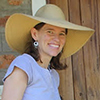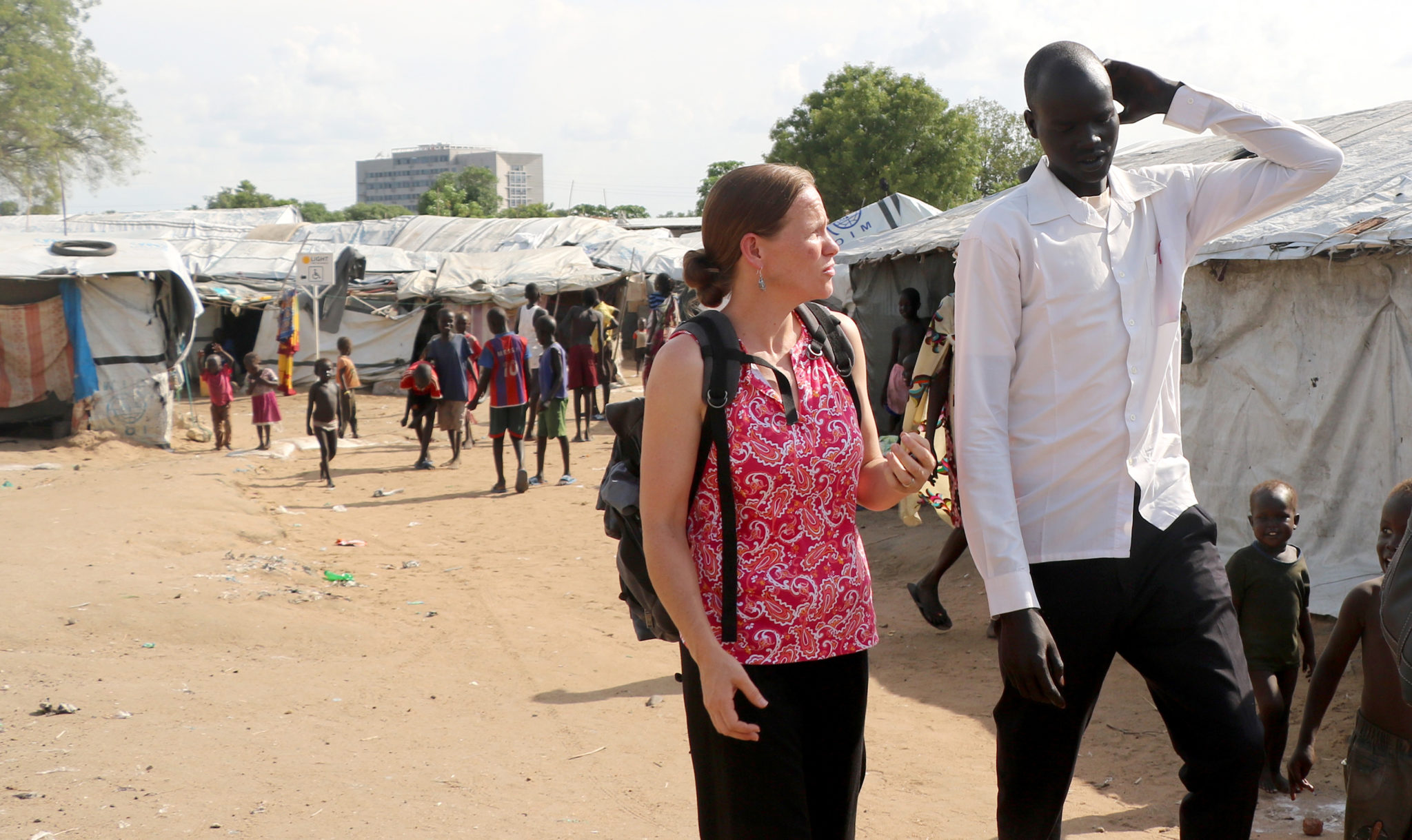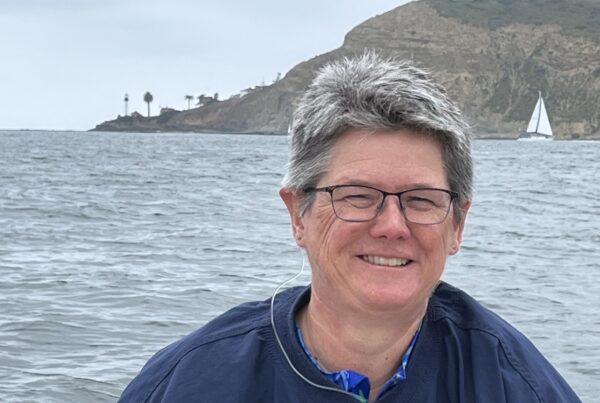I knew I would be asked to stand and greet the congregation, but what would I say? What could I say to people who have been run out of their homes by a gruesome civil war, who have lost their possessions, who have lost loved ones? What words would lift the hearts of people now living as refugees on this rocky, unwanted land, with tarps as walls for their houses and also as the roof of their church?
I watched in awe as children paraded into the church, waving tree branches, shouting praises, and leading the adults into the Palm Sunday celebration. Bright green leaves hung like chandeliers from the canvas ceiling while broken emerald branches lay prostrate, one after another, down the dirt aisle. Brown stones, collected from the rough surrounding soil, were arranged in a beautiful floor beneath the altar table. A colorful cloth, gathered at the corners, held the offering while ululating voices punctuated the air with life and reverence.
I am embarrassed to admit that, when I had pictured refugee camps, I never envisioned vibrant worship. Yet, on that day, aching knees, which had pressed on for days to reach safety, were now bent in devotion. Tongues, parched for water under the unrelenting sun, confessed a Savior who willingly gave up his home to suffer in this broken world.
I knew what I would say. All I could say to the group gathered was, “Thank you. Your faith is an inspiration to the church around the world.”
The story of this displaced congregation, and the story of her home nation, is not known by many. Shortly after becoming a new country in 2011, South Sudan fell into civil war. The following years of violence have chased four million citizens from their homes, half of them fleeing across borders into neighboring countries. Most of the refugees, like this church family, settled in Uganda.
As a result, South Sudanese mission partners have created new strategies to serve citizens living in Uganda’s refugee camps. A delegation from the Reformed Church in America, which I serve with, made a solidarity visit to the camps, worshiping together on Palm Sunday last year. After the final hymn, our group was invited for a meal. Even as the church elders talked of their physical hunger, they shared their food with us.
May the global church be nourished and challenged by such faith, so that we do not grow tired of laboring and praying, until these sisters and brothers of ours are back home.

Nancy Smith-Mather
Nancy Smith-Mather and her husband, Shelvis, are Reformed Church in America missionaries serving alongside the Reformed Church in America’s South Sudanese partners in both Uganda and South Sudan.



